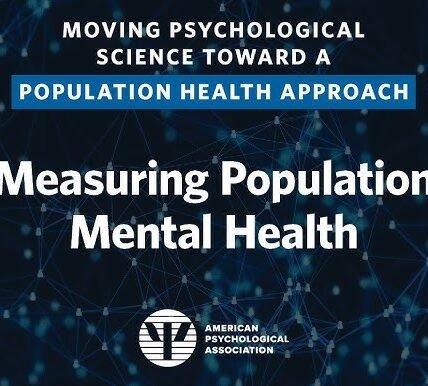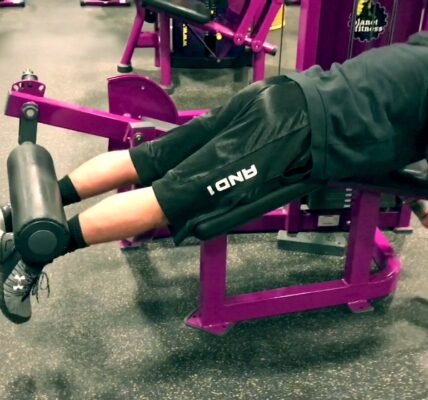Stress and anxiety are common challenges in today’s fast-paced world. Whether you’re dealing with work pressure, family obligations, or personal issues, it can feel overwhelming. However, there are many natural ways to manage stress and anxiety without relying on medication. In this article, we’ll explore effective holistic approaches to stress relief and management, mindfulness techniques, and herbal remedies for natural anxiety and stress relief.
Understanding Stress and Anxiety
Before diving into natural solutions, it’s essential to understand what stress and anxiety are and how they affect your body and mind. Stress is the body’s response to challenges or demands, while anxiety is a persistent feeling of worry or fear, often without a clear trigger. Chronic stress and anxiety can lead to various physical and mental health issues, including fatigue, headaches, muscle tension, and even depression.
How to manage stress and anxiety naturally involves understanding the root cause and taking proactive steps to reduce its impact. Let’s explore some of the best strategies.
1. Holistic Approaches to Stress Relief and Management
A holistic approach to stress relief and management focuses on treating the whole person—mind, body, and spirit—rather than just addressing individual symptoms. This approach combines various techniques and practices that promote relaxation and overall well-being.
a. Deep Breathing Exercises
One of the most effective ways to reduce stress naturally is through deep breathing exercises. When you take slow, deep breaths, your body activates the parasympathetic nervous system, which calms your mind and reduces physical stress.
Steps for Deep Breathing:
- Sit in a comfortable position with your back straight.
- Close your eyes and take a slow, deep breath in through your nose for 4 seconds.
- Hold your breath for 4 seconds.
- Exhale slowly through your mouth for 6 seconds.
- Repeat the cycle 5-10 times.
b. Regular Physical Activity
Exercise is a powerful natural remedy for stress and anxiety. Physical activity releases endorphins, which are chemicals in the brain that act as natural painkillers and mood elevators. Even a 20-minute walk or yoga session can significantly reduce feelings of anxiety.
Recommended Activities:
- Walking or jogging
- Yoga or Tai Chi
- Swimming
- Dancing
c. Sleep and Rest
Lack of sleep can exacerbate both stress and anxiety. It’s crucial to establish a healthy sleep routine to manage these issues naturally. Aim for 7-9 hours of quality sleep each night.
Tips for Better Sleep:
- Stick to a regular sleep schedule.
- Avoid caffeine and electronics before bedtime.
- Create a relaxing pre-sleep routine, such as reading or taking a warm bath.
2. Mindfulness Techniques for Reducing Anxiety Naturally
Mindfulness is the practice of staying present and fully engaged in the moment, which helps reduce stress. And anxiety by preventing your mind from wandering into negative thoughts. Mindfulness techniques for reducing anxiety naturally are simple yet powerful tools you can incorporate into your daily routine.
a. Meditation
Meditation is one of the most popular mindfulness techniques. It helps calm the mind, improve focus, and reduce feelings of stress.
Steps for Meditation:
- Find a quiet space and sit in a comfortable position.
- Close your eyes and focus on your breathing.
- If your mind starts to wander, gently bring your focus back to your breath.
- Meditate for 10-20 minutes, gradually increasing the duration.
b. Guided Visualization
Visualization involves imagining peaceful and relaxing scenes to help reduce anxiety. By picturing yourself in a calm environment, such as a beach or a forest, you can activate your body’s relaxation response.
Steps for Guided Visualization:
- Find a quiet place and close your eyes.
- Picture yourself in a peaceful setting.
- Focus on all the details, such as the sound of the waves or the smell of fresh flowers.
- Spend 10-15 minutes in this calming mental space.
c. Body Scan Technique
The body scan technique is a mindfulness practice that involves mentally scanning your body for areas of tension and consciously relaxing them. This technique helps improve body awareness and promotes relaxation.
Steps for Body Scan:
- Lie down in a comfortable position with your eyes closed.
- Focus on one body part at a time, starting with your toes and moving up to your head.
- As you focus on each area, breathe deeply and consciously relax that part of your body.
- Continue until you’ve scanned your entire body.
3. Herbal Remedies for Natural Anxiety and Stress Relief
Nature provides many herbs that have been used for centuries to reduce anxiety and promote relaxation. Herbal remedies for natural anxiety and stress relief are a great way to support your body’s natural calming mechanisms.
a. Chamomile Tea
Chamomile is well-known for its calming properties. Drinking chamomile tea before bedtime can help you relax and improve sleep quality.
How to Use:
- Steep a chamomile tea bag in hot water for 5 minutes.
- Drink the tea before bedtime to promote relaxation and restful sleep.
b. Lavender Essential Oil
Lavender is another popular herb known for its stress-relieving qualities. Its essential oil can be used in various ways to reduce anxiety
How to Use:
- Add a few drops of lavender oil to a diffuser.
- Apply diluted lavender oil to your temples or wrists.
- Add a few drops to your pillow before sleep.
c. Ashwagandha
Ashwagandha is an adaptogen that helps the body cope with stress. It can help lower cortisol levels, the hormone associated with stress, and improve overall mood.
How to Use:
- Take ashwagandha supplements according to the recommended dosage.
- Consult with a healthcare professional before using ashwagandha, especially if you have existing health conditions.
Comparison Table: Herbal Remedies for Stress Relief
| Herb | Benefits | How to Use | Best Time to Use |
|---|---|---|---|
| Chamomile | Calms the nervous system, promotes sleep | Drink as tea or use in aromatherapy | Before bedtime |
| Lavender | Reduces anxiety, improves sleep quality | Use essential oil or add to a bath | Throughout the day, before sleep |
| Ashwagandha | Reduces stress, lowers cortisol levels | Take in supplement form | Morning or afternoon |
FAQs about Managing Stress and Anxiety Naturally
1. Can I manage anxiety without medication?
Yes, it is possible to manage anxiety without medication using natural methods such as deep breathing, mindfulness, physical exercise, and herbal remedies.
2. How long does it take for natural remedies to work?
The time it takes to see results from natural remedies varies from person to person. Some people may feel immediate relief, while others might need a few weeks of consistent practice.
3. Are herbal remedies safe?
Most herbal remedies are safe when used appropriately. However, it’s important to consult with a healthcare provider, especially if you’re taking other medications or have a pre-existing condition.
4. What is the best natural remedy for stress?
The best natural remedy for stress depends on individual preferences. For some, physical activity and deep breathing work wonders, while others may benefit more from herbal teas or mindfulness techniques.
5. How can I incorporate mindfulness into my daily life?
Start by setting aside 5-10 minutes each day for mindfulness practices such as meditation or deep breathing. Gradually, you can incorporate mindfulness into your routine by staying present in the moment throughout the day.
Conclusion
Managing stress and anxiety naturally is not only possible but also highly beneficial for long-term well-being. By using holistic approaches to stress relief and management, incorporating mindfulness techniques for reducing anxiety naturally, and exploring herbal remedies for natural anxiety and stress relief, you can take control of your mental and physical health.
Remember, the key to success is consistency. It may take time to notice significant improvements, but with patience and persistence, you’ll find natural ways to manage stress and anxiety that work best for you. So, take a deep breath, embrace these practices, and start your journey toward a calmer, more balanced life. manage stress and anxiety





